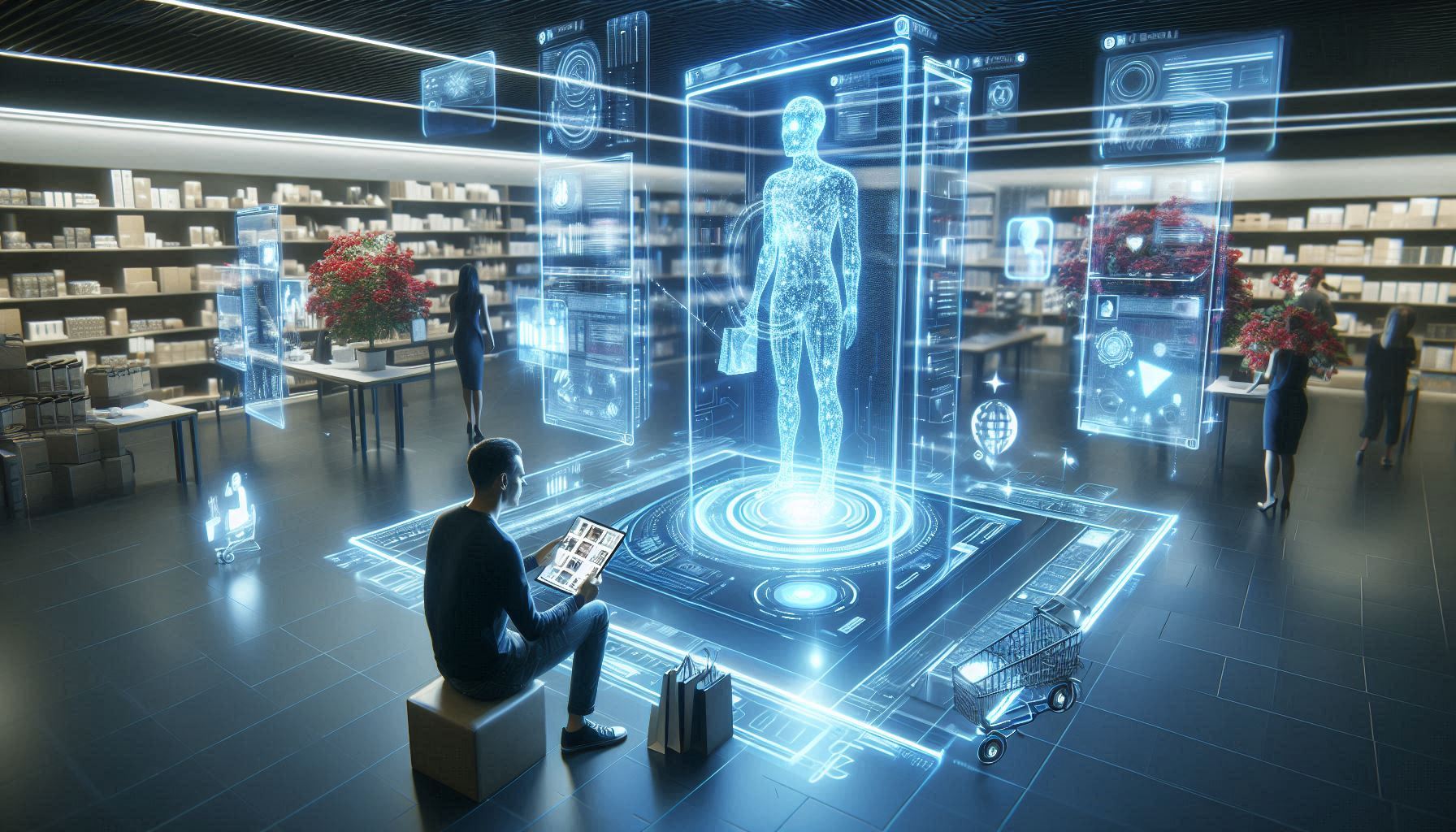Ecommerce has quickly embraced artificial intelligence (AI), using it for things like personalized product recommendations, better customer service, smart pricing, efficient logistics, and predicting sales and demand. Companies that use AI strategies make at least 20% more revenue and cut costs by around 8%. These great results have led to a big increase in global investment in AI, which grew more than four times between 2015 and 2021.
The pandemic sped up the shift to online shopping, and this trend is here to stay. In 2021, 17.8% of all sales were made online. By 2023, that number jumped to 20.8%, and by 2025, it’s expected that almost a quarter (23%) of all purchases will happen online.
Even though ecommerce is a huge part of the global economy, it brings challenges for retailers. Just having a good product isn’t enough anymore—they need to stand out in a crowded online marketplace.
That’s where AI comes in.
In this article, we’ll explore how AI helps retailers create personalized shopping experiences that keep customers coming back. We’ll also look at how AI can improve behind-the-scenes operations to make businesses more competitive. Plus, we’ll peek into the future of ecommerce and see what’s in store for companies that fully embrace AI.
Main Types of AI for Ecommerce
Let’s look at some interesting facts about AI in ecommerce:

- By 2032, the ecommerce AI market is expected to be worth $45.72 billion.
- 84% of ecommerce businesses consider AI their top priority.
- AI in ecommerce can improve customer satisfaction, boost revenue, or reduce costs by over 25%.
These numbers show how important AI is becoming in the ecommerce world. It helps businesses connect better with customers, make personalized recommendations, and streamline operations to make shopping easier and more enjoyable.
Now, let’s dive deeper.

Also Read: What are the Best Voice Assistants Powered by AI?
Personalized Product Recommendations
Shopping habits have changed, and so have customer expectations. Today, people want a personalized shopping experience. When retailers deliver that, they see a 40% increase in revenue. But here’s the kicker—only 1 in 10 retailers fully use personalization across all channels, which means there’s a big opportunity just waiting to be tapped into.
So, how does AI help with personalized product recommendations?
AI analyzes data from things like past searches, clicks, and purchases. It then uses algorithms to suggest the most relevant products to each customer. You’ve probably seen this in action when websites show sections like “Inspired by your shopping trends” or suggest add-on items in your cart.
These personalized recommendations make shopping easier and more enjoyable because customers find what they want faster—and often discover other products they didn’t even know they needed! From the retailer’s side, it boosts customer loyalty and opens up opportunities for cross-selling and upselling.
According to McKinsey, using AI for personalization can lead to:
- 10-30% more efficient marketing and cost savings
- 3-5% more customer acquisitions
- 5-10% higher satisfaction and engagement
Smarter Searches
AI also helps retailers understand the intent behind a shopper’s search query. With average ecommerce bounce rates between 20-45%, smarter searches can reduce this by showing more relevant results.
How does it work?
AI looks at patterns in both online and offline data to understand what customers are really looking for. Machine learning algorithms take this further by making the data more contextual. For example, if someone searches for “hats” and has a wedding coming up, AI might show fascinators instead of winter beanies.
AI also learns about individual preferences over time, which means search results get more accurate the more someone shops. This level of personalization can help retailers reduce abandoned carts—something every ecommerce store struggles with since the global cart abandonment rate is a whopping 70.21%.

Also Read: What are the Top AI Health Apps in 2025?
Logistics and Forecasting
AI isn’t just useful for the shopping experience—it’s also a game-changer behind the scenes. As ecommerce continues to grow, AI helps retailers manage complex operations like inventory and supply chain management.
It does this by analyzing data from multiple sources, such as sales history, market trends, and even customer reactions to promotional emails. AI then uses this data to make real-time predictions and decisions. This helps with things like:
- Inventory management: Predicting demand more accurately by analyzing historical sales data and market trends.
- Seasonality predictions: Knowing when to stock up for events like Black Friday.
- Pricing optimization: Adjusting prices dynamically based on supply and demand.
AI also automates repetitive tasks, saving time and reducing costs. According to McKinsey, businesses using AI for logistics have:
- Cut logistics costs by 15%
- Reduced inventory levels by 35%
- Improved service levels by 65%
AI Assistants
AI-powered chatbots now handle 70% of online customer conversations. With the rise of generative AI, ecommerce businesses are upgrading their chatbots to offer even better customer support and personalized experiences.
For shoppers, this means getting instant help with complex questions, personalized product recommendations, and real-time package tracking. For retailers, AI assistants help break down language barriers in supply chains, spot counterfeit products, and optimize product descriptions using A/B testing.
But how do they work?
AI chatbots use deep learning to understand individual customer preferences. For example, if reviews say a sweatshirt runs large, the chatbot might suggest buying a smaller size. They also use natural language processing (NLP) to make smart, relevant suggestions at different stages of the buying journey.
The Big Trend To Look Out for in AI Ecommerce
The next big thing? Conversational commerce. We’re already using voice assistants like Siri, Google Assistant, Alexa, and Cortana every day. As this technology gets better, it’s going to make voice-enabled shopping even easier, changing how people buy things online.

With natural language processing, conversational commerce is already helping create more personalized shopping experiences. AI plays a big role by using customer data and purchase history to make online shopping as smooth as possible.
Back in 2017, voice-enabled shopping was worth $2 billion. Just five years later, it’s jumped to $40 billion—and that’s mostly thanks to only 10% of consumers using voice assistants to shop daily.

Also Read: How does AI Improve Online Education?
The Future of AI in Ecommerce
To make the most of AI for your business, you need a powerful all-in-one solution like Bloomreach. Whether it’s using AI to help customers find products or running smart marketing campaigns across different channels, our technology lets you create personalized experiences that feel almost magical.
Here are some impressive results that ecommerce brands have seen with Bloomreach:
- The Thinking Traveller saw a 33% increase in booking inquiries.
- 4Home achieved an 800% return on ad spend (ROAS).
- Bensons for Beds boosted ecommerce sales by 41% year-over-year.









